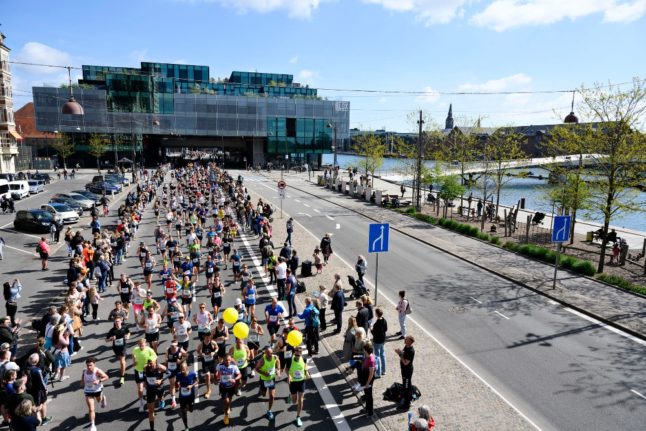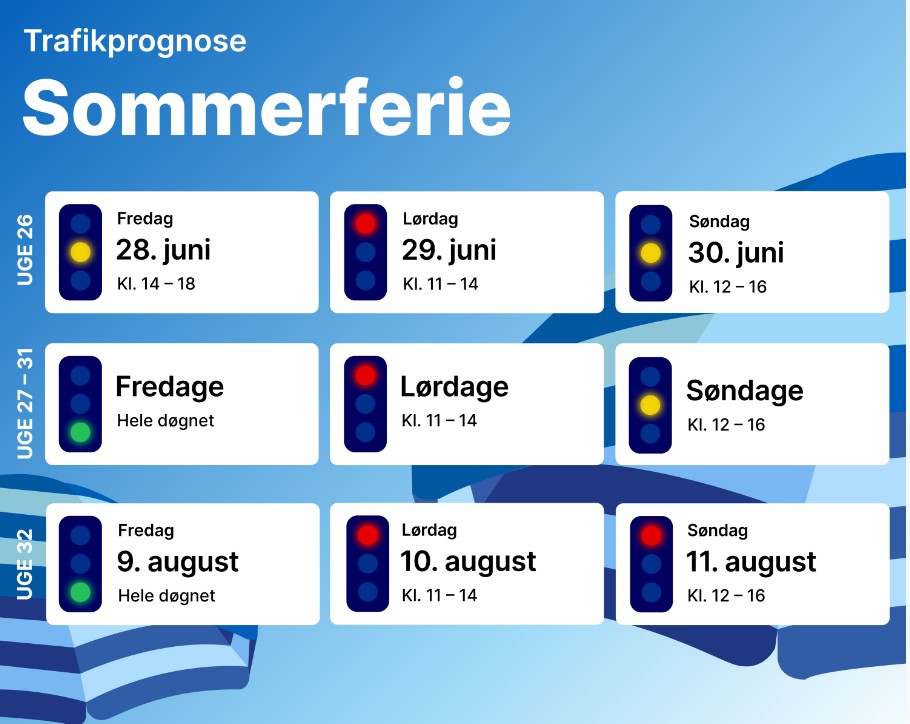Roads will be closed in each of the capital’s central districts of Østerbro, Vesterbro, Nørrebro and Inner City, as well as in Frederiksberg, on the day of the race.
Cars will not be permitted to drive on the marathon route until it is reopened, including at times when there are no runners on those sections. As such, drivers should park outside the city centre and head in via public transport, or choose routes that avoid the centre if crossing Copenhagen.
Streets included on the route will be reopened in sections after runners have passed them, Copenhagen Marathon states in its traffic advice ahead of Sunday’s race.
A full map of the marathon route can be found here, including a list of points where cars can cross the marathon route. Drivers should be aware that these points may not always be open while the race is ongoing.
Residents and visitors to the city are advised to use the Metro, S-train and regional train services wherever possible, as these are unaffected by the event. Bus routes are likely to be diverted or cancelled.
If you are heading across town by bicycle or on foot, you will be able to cross the course when there are no runners. This might require walking alongside it for a while to find a gap and to wait for a break in participants. Race marshals can provide instructions for crossing.
Two bicycle bridges crossing Copenhagen Harbour, the “Cykelslangen” from Fisketorvet to Dybbølsbro; and the “Lille Langebro” between Islands Brygge and the Danish Architecture Centre and Royal Library, will both be closed from 7am to 4pm. The harbour can instead be crossed via the main Langebro bridge.
The 2023 Copenhagen Marathon is the 42nd edition of the event, which was cancelled in 2020 and 2021.
Its route through the city has been updated for this year, with the start and finish area now at Øster Allé near Fælledparken, instead of by the harbour at Islands Brygge as in past editions. The classic 42.2 kilometre (26 mile) distance will take marathoners past Tivoli, Christiansborg and Kongens Nytorv, with the Round Tower and Nyhavn among landmarks from the old route that have been dropped.
Race organiser Sparta says the new route is flatter and therefore hopes for new course records to be set on Sunday, helping position the Copenhagen Marathon as the fastest and most attractive marathon in the Nordic region.




 Please whitelist us to continue reading.
Please whitelist us to continue reading.
Member comments